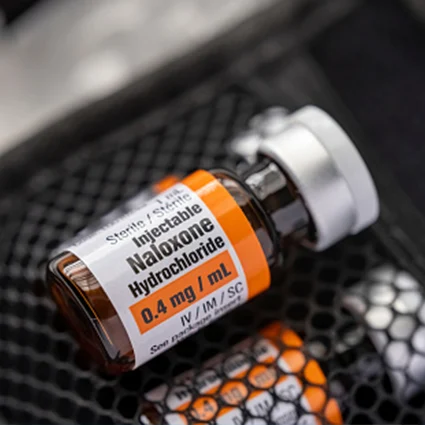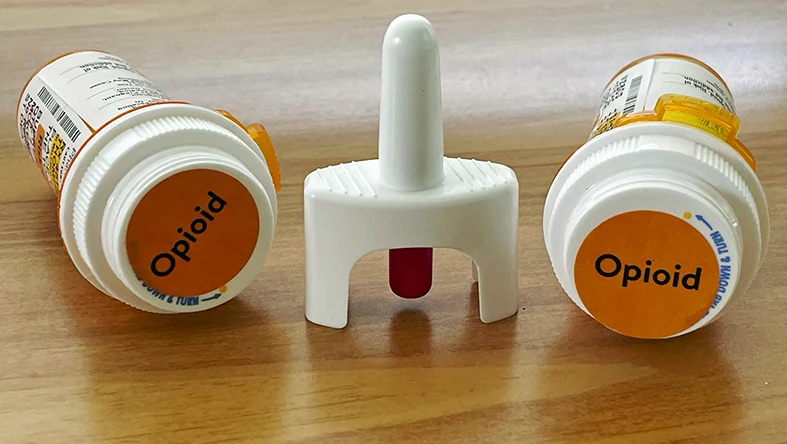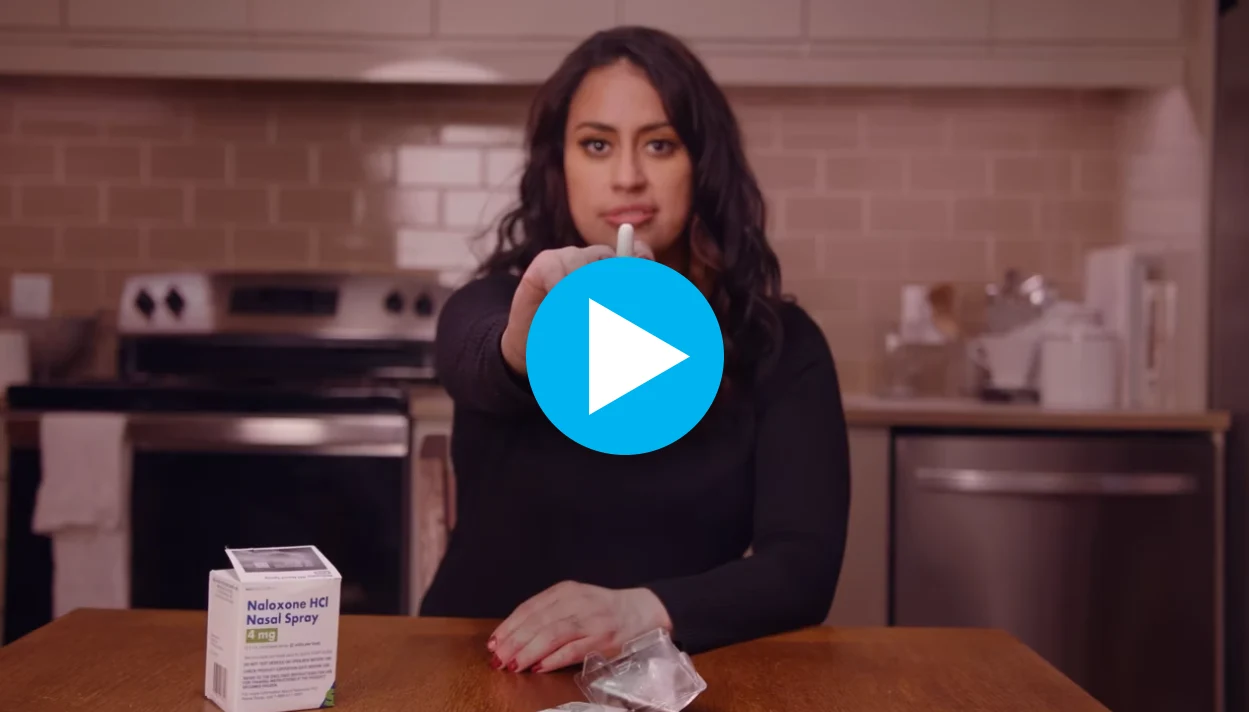Take small, everyday steps to protect the people you care about. You could save a life by carrying naloxone and knowing how to help during an opioid overdose
What is Naloxone?
Naloxone is a life-saving medication that can help during an opioid overdose. Opioids can be prescription medications or illegal drugs.

Even people with legal prescriptions for an opioid medication can accidentally overdose. Naloxone is not habit-forming and is safe to use for a suspected overdose, even if it turns out someone has not used opioids.Naloxone comes in two forms and may also be called by a brand name:
- Nasal sprays: Narcan®, RiVive®, Kloxxado®, Rextovy™
- Injectable: Zimhi™
What are opioids and what is an overdose?
Opioids include prescription pain medication like oxycodone (Oxycontin®, Percocet®), hydrocodone (Vicodin®, Lortab®), morphine (MS Contin®), methadone, codeine, and many others, and drugs like heroin and fentanyl.
Someone with a prescription can accidentally overdose. Someone who takes a drug that is not prescribed to them is also at risk.
Many drugs like pills, cocaine, or MDMA (also known as molly or ecstasy) can have opioids like fentanyl mixed in them without the seller or person using it knowing. Any amount of fentanyl can cause an overdose or death.
Prescription opioids or drugs with opioids mixed in, can cause a person’s breathing to slow or stop. When breathing stops or is too slow to support life, this is an overdose.
Opioid overdose is very dangerous and can lead to death. It is important to give naloxone right away if you think someone is having an overdose.
Who should carry naloxone or have it readily available?
Anyone can get, carry, and use naloxone. Carrying naloxone could be lifesaving for:
- Anyone who uses an opioid medication or drug.
- Friends, family members, and caretakers of individuals who use or have access to opioids.
How can I get naloxone?
You can get naloxone from the pharmacy regardless of age – no prescription is required. Call your pharmacy in advance to make sure they have naloxone and will give it to you without a prescription.
When should naloxone be used?
Use Naloxone any time you think someone is having an opioid overdose.
Signs of overdose include:
- Unresponsiveness: No response when you shake them or call their name
- Breathing: Slowed or stopped breathing
- Eyes: Pinpoint-sized pupils
- Lips and fingernails: Change in color to pale, blue, or grey
How do you give someone naloxone?
You do not need special training to give someone naloxone. It comes in a nasal spray (spray in nose) and as an injectable or pre-filled syringe (inject in a thigh or arm muscle).
Each product will come with instructions on how to use it. Brands can vary, your pharmacist or health care provider can show you how to use the type you get.
What to do if someone is overdosing
- Give one dose of naloxone and call 911.
- Roll the person to their side (in case of vomiting).
- If the person has not responded after 3 minutes, give an additional dose.
To learn the steps in detail, review the WA Department of Health Overdose Response Instructions.
How much does naloxone cost?
Your health insurance plan may cover all or some of the cost. If you qualify for Apple Health (Medicaid) health insurance, Naloxone is free. Without insurance, the cost is usually $25 – $50, but costs can vary.
If you’re a CHPW member, call our Customer Service team if you have questions about how to get naloxone at 1-800-440-1561 (TTY: 711), 8 a.m. to 5 p.m. Monday to Friday.
If you cannot pay for naloxone or don’t have health insurance, find free naloxone near you: Washington State Naloxone Finder
Find recovery help
If you’re struggling with opioid use, know it takes courage to ask for help. Whether or not you’re a CHPW member, our website can help you find resources and get answers to your questions about behavioral health and recovery.
Learn more about naloxone and opioid overdose
- WA Friends for Life: Keep your circle safe
- Washington State Department of Health: Overdose Education and Naloxone Instructions
- Washington Recovery Help Line: Free, confidential help for substance use
The information provided on this site is general in nature and is intended for educational purposes only. It is not a substitute for the advice of health care professionals. If you have specific health care needs or questions, please contact a doctor or other health care provider.


